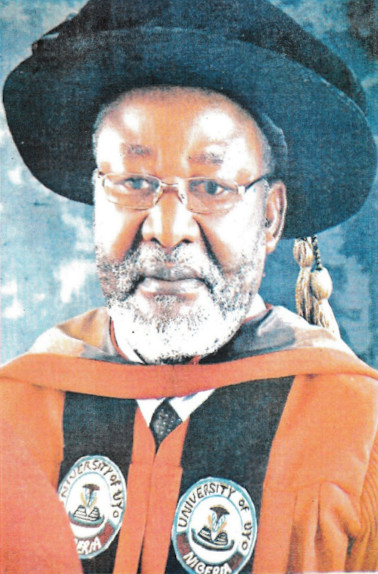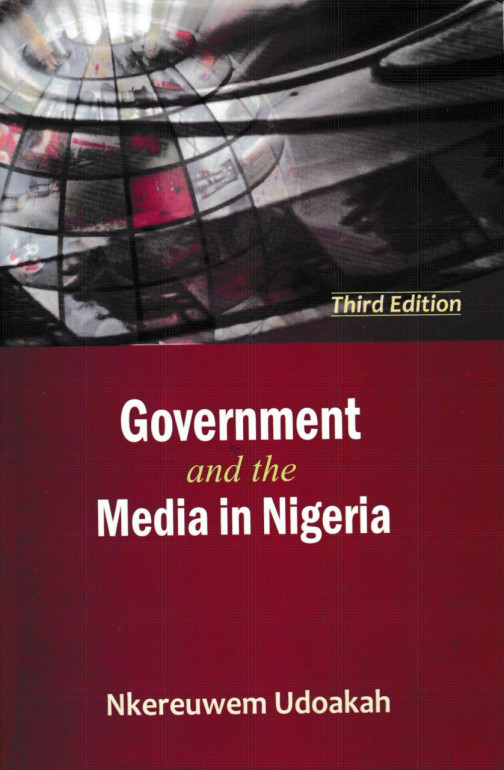The Government and The Media in Nigeria
$7.00
Contents
Dedication
Acknowledgements
Preface
1. Thoughts on Journalism Practices in a Democracy
– The Press and the Society
– The Press and Democracy
– Democracy
– Types of Democracies/Challenges for the Press
2. Problems of Definition and Measurement of Press Freedom
– Understanding Media Freedom
– The Press
– Broadcasting
3. The Question of Press Freedom in Nigeria and Freedom of Information Act
– Freedom of Information Bill
4. The Political Foundation of The Nigerian Media
– Media Ownership
– Newspaper and Magazine Distributions across Geopolitical Zones
– Newspaper and Magazine Distributions across States of the Federation
– Broadcasting
– Private Broadcasting
5. The Nature of Control on Media Output in Nigeria
– Constitutional and Legal Controls
– Policy Objectives
– Direct Instructions
– Appointments and Dismissals
– Arrest and Detention
– Delays in Transactions with the Media
6. Governance and Media Relations
– Media Relations
7. Editors on Press Freedom
8. Global Dark Side of Journalism Practice
– Violent Conflict
– The Nature of Violent Conflict Report
– The Risks Involved
9. Rationale for Government Actions/Future Trends
Appendix I
Appendix II
References
Index
Description
Preface
This book remains a dispassionate research by a print journalist and a lecturer in the Department of Communication Arts, University of Uyo since 1990. It is written not just for the serious reader but also for the casual inquirer who may like to feel the pulse about trends or developments about the Nigerian Press. The book tries to provide a cross between the two different streams of intellectual writing on the press in Nigeria, via those who argue on idyllic level, the dire necessity for free press and those who, like T.O.S. Elias, have provided somewhat text book foundations for understanding the legal limits of the free press in Africa.
The book brings to the front burner the legal and institutional straits within which the Nigerian media operate and the factual instances which portray the brutalities committed against the press since the 1970s to date. Besides, it gives insight into the different complexions that government can adorn towards the press, the thin ether of skin that certain governments maintain in the face of criticism and how easily that ether can wear away when personal idiosyncrasies are infringed.
However, this new edition has introduced a new Chapter One, entitled Thoughts on Journalism Practice in a Democracy and merged former Chapters One and Two as a new Chapter Two with the title: Problem of Definition and Measurement of Press Freedom. To Chapter Three is added the issues on the Freedom of Information Act, and it now takes the title The Question of Press Freedom and Freedom of Information Act. Chapter Four retains its title but has been revised and updated to reflect developments since the second edition was published.
Also, Chapter Five retains its title but has been extensively updated. A new Chapter Six, entitled Governance and Media Relations, has been added. Former Chapters Six and Seven are now Seven and Nine respectively, while a new Chapter Eight Global Darkside of Journalism Practice, has been introduced.
Another new feature of this edition is an appendix detailing radio, television and cable stations operating in Nigeria.
I remain grateful to all those acknowledge in earlier editions of this book and those who have contributed to the success of this edition, particularly, my wife Lucy after seventeen years.

Prof. Nkereuwem Udoakah
Nkereuwem Udoakah is a former newspaper journalist, now a Professor in Communication Arts in the University of Uyo, Nigeria. His professional experience includes reporting and editorial work with the Nigerian Chronicle and Quest Magazine, published by the Cross River State Newspaper Corporation, Calabar. He worked as a sub-editor, editorial assistant, feature writer, production editor and assistant editor on those publications. He became the officer responsible for fund-raising at the University of Cross River State (now University of Uyo) before joining the academic staff. Prof. Udoakah is a member of the Advertising Practitioners Council of Nigeria (APCON), the Nigeria Union of Journalists (NUJ) and the Nigerian Institute of Public Relations (NIPR). His research interests include journalism and media Studies, politics and the media, and development communication. He is the author of Government and the Media in Nigeria, Development Communication and Issues in Media Practices. He has many book chapters and journal articles to his credit. Prof.
Udoakah had his professional training in Ghana and Britain.
Questions and Answers
You are not logged in
